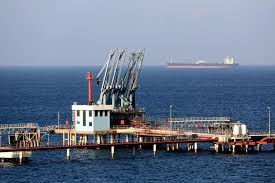A tanker has been forced to divert from Libya's Marsa el-Hariga terminal, where strike action among guards has prevented crude from being exported for two weeks.
The Suezmax Delta Eurydice was initially bound for Marsa el-Hariga, but shipping sources said it diverted for the nearby Es Sider terminal today. It is due to arrive at Es Sider tomorrow, according to Vortexa.
The Delta Eurydice is one of three tankers that have been scheduled to load crude at Marsa el-Hariga since industrial action among members of the Petroleum Facilities Guard (PFG) started last month in a dispute over pay. Shipping sources said the Front Cruiser may have also cancelled its call at Marsa el-Hariga, but shipping data show it lingers by the terminal and market participants said it is likely to hold its position. Likewise, the Malibu remains by the terminal.
Members of the Petroleum Facilities Guard (PFG), which typically protect state-controlled oil firm NOC's ports and infrastructure, first threatened strike action at Marsa el-Hariga, as well as the ports of Ras Lanuf and Es Sider, on 24 January. The said they had not been paid their field allowance — which tops up their base salaries — for most of last year. The Government of National Accord (GNA) in Tripoli responded the same day with a pledge to honour the wages of the PFG faction at Marsa el-Hariga, but a contingent of the group was unconvinced that the payments would materialise, and port operations have not yet resumed.
Vessel tracking data show no crude has been exported from Marsa el-Hariga since the Suezmax Delta Sky departed with 1mn bl of Sarir/Mesla for the Chinese port of Dalian on 21 January, but NOC has yet to declare force majeure on loadings, a trading source said. Five 1mn bl cargoes of Sarir/Mesla crude had been due to depart the port this month, according to preliminary loading data compiled by Argus.
As of today, guards at Es Sider and Ras Lanuf are not on strike, shipping sources said, even though a 10-day deadline for the GNA to resolve their wage demands has now expired. A meeting at Libya's finance ministry last week resulted in a government promise that the field allowance deducted from salaries of "all contracting individuals" in November and December last year would be repaid by the end of March, the PFG said.
The agreement involves some PFG contractors being registered as Libyan military personnel or receiving revised employment contracts. The PFG's five branches currently operate in association with Libya's defence ministry but are administered by NOC and the oil ministry. Ties between the PFG and NOC have proved tenuous in the past because of the former's frequent suspension of oil activities in support of regional tribes or Khalifa Haftar's Libyan National Army (LNA).
Strikes over unpaid wages used to be a regular fixture in Libya's oil sector prior to last year's blockades in which the PFG joined Russian, Sudanese and Syrian mercenaries in closing down most of the country's onshore terminals and oil infrastructure for eight months. The blockades were lifted in September. Argus estimates that Libyan crude output averaged 1.16mn b/d last month, while exports reached 971,000 b/d.
By Ruxandra Iordache Argus Media




